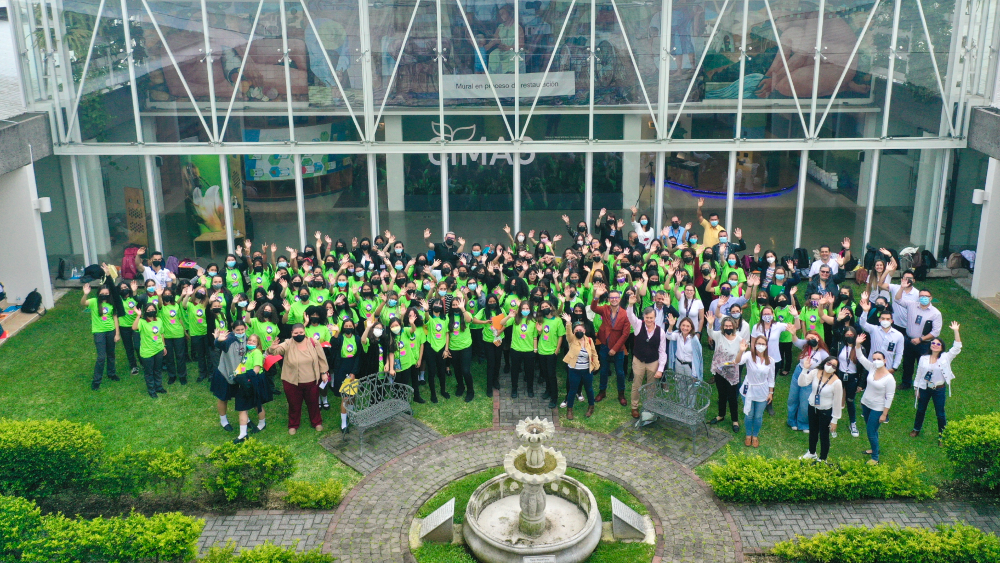Students from technical schools in the country attended workshops and engaged with female leaders about issues related to STEM – the fields of science, technology, engineering and mathematics.

San Jose, 16 June 2022 (IICA) – One hundred and twenty-five female students from technical schools in Costa Rica have now been equipped with more and better tools to enter the fields of science, technology, engineer and mathematics (STEM), thanks to an initiative by Microsoft, with the support of the Inter-American Institute for Cooperation on Agriculture (IICA) and the Ministry of Public Education of Costa Rica (MEP)
The DigiGirlz program, as it is called, aims to promote technical education to girls and adolescents, to enable them to take on the challenges of globalized economies, through the STEM fields.
In collaboration with the MEP, the participating students—aged twelve to nineteen years—were selected to visit IICA Headquarters in San Jose to attend workshops on artificial intelligence, application development and programming, given by female STEM industry leaders.
Margarita Morere, Microsoft’s Regional Director of Education for Central America, Panama and Venezuela, explained that, “We are seeking to empower women and bring them in closer contact with these areas. Creating greater gender balance in STEM is very important”.
“As women, we must fly the leadership flag. We know that we must move forward and technology offers us many opportunities. Study is a stepping stone that will assist you to progress, live in a more stable economy and help your homes”, remarked Rocío Solís, Vice-Minister of Academics at MEP.
“This offers us an opportunity to acquire tools and to create our own businesses”, she said.
The World Economic Forum estimates that by 2030, 77% of jobs will require technology skills. The demand is growing but has still not been satisfied, coupled with the fact that there is still a dearth of women in the STEM fields. According to UNESCO, only 35% of students pursuing higher studies in this area are women. Moreover, in the software industry, female representation is usually less than 10%”
Manuel Otero, IICA Director General, pointed out that, “Access to and use of digital technologies is key to reducing the existing gaps in our societies, such as gender gaps and the exposure of our rural girls and young women—a particularly vulnerable group in our region—to development opportunities. IICA considers its involvement in this initiative to be extremely important, because it coincides with our vision that achieving inclusiveness, equity and resilience in agriculture and other industries will depend on integrating our efforts”.
IICA and Microsoft are partnering to address the gender divide in the technology industry and the digital divide in rural areas of the Americas. Microsoft’s Minecraft technology is one tools demonstrated at the Institute’s Interpretive Center for Tomorrow’s Agriculture (CIMAG), as one of the solutions to modernize agriculture and to attract more young people to agriculture-related professions.
The 11th edition of Digigirlz, which was undertaken as a virtual program in Panama, Costa Rica, Honduras, Guatemala and El Salvador, trained young people to navigate an increasingly digitalized world. The workshops were especially designed to provide the young women with the opportunity to learn and develop STEM skills, as well as to equip them with the curiosity and skills needed in this era of the Fourth Industrial Revolution.
Since 2010, when the program began, more than 15,000 girls and young women in Central America have taken part in this annual workshop to develop technology skills and attend talks.
More information:
Institutional Communication Division
comunicacion.institucional@iica.int











